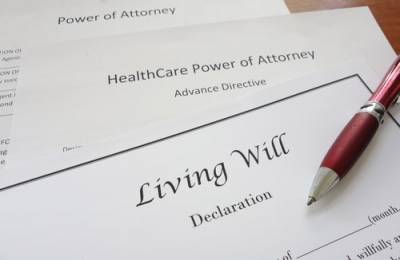 28 N. 1st St., Suite 101, Geneva, IL 60134
28 N. 1st St., Suite 101, Geneva, IL 60134
Recent Blog Posts
How Can Radon Complicate the Sale of a Home?
 Radon is a harmful substance that is found in the ground. Sometimes, radon can leach out of the ground and appear in the basement of residential homes. When a homeowner wants to sell, tests will usually be performed during the sale process to determine the home’s radon levels. If they come back showing high levels of radon, it can throw a wrench into the residential real estate transaction process. Deals can still go through, even with a high radon level, but they usually require some adjustment.
Radon is a harmful substance that is found in the ground. Sometimes, radon can leach out of the ground and appear in the basement of residential homes. When a homeowner wants to sell, tests will usually be performed during the sale process to determine the home’s radon levels. If they come back showing high levels of radon, it can throw a wrench into the residential real estate transaction process. Deals can still go through, even with a high radon level, but they usually require some adjustment.
Radon Is a Dangerous Gas
Radon is a gas that is created when radioactive elements in the ground decay. Large-scale exposure to radon is carcinogenic. Radon is blamed for approximately 20,000 deaths each year and is a major contributor to high rates of lung cancer among non-smokers. Accordingly, radon testing is a part of the due diligence and inspections that a buyer performs before the home selling transaction is completed.
Can I Buy a Car After Bankruptcy?
 Many people who file for bankruptcy believe that they will never be able to get any kind of credit in the future. They believe that things like a new car are out of reach. It is possible to get car loans after bankruptcy, but you will need to pay more for it. A Geneva bankruptcy lawyer can advise you of the potential effects of declaring bankruptcy and what could happen in the following years.
Many people who file for bankruptcy believe that they will never be able to get any kind of credit in the future. They believe that things like a new car are out of reach. It is possible to get car loans after bankruptcy, but you will need to pay more for it. A Geneva bankruptcy lawyer can advise you of the potential effects of declaring bankruptcy and what could happen in the following years.
You Can Get Some Types of Credit
In general, bankruptcy will remain on your record for seven years after the process concludes. The bankruptcy will continue to affect your credit. Immediately after the debt is discharged is when there will be the highest impact. Most lenders will decline for traditional auto loans because of your credit. However, the more time passes after your bankruptcy, the more the impact will diminish. It may be possible to get a traditional car loan several years after your bankruptcy.
FAQs Regarding Powers of Attorney in Illinois
 For most adults, the prospect of being unable to make your own decisions is not something we want to consider. While this is understandable, incapacitation planning is still a crucial part of the estate planning process. Planning for the possibility of severe illness is important regardless of your age, health, or financial circumstances.
For most adults, the prospect of being unable to make your own decisions is not something we want to consider. While this is understandable, incapacitation planning is still a crucial part of the estate planning process. Planning for the possibility of severe illness is important regardless of your age, health, or financial circumstances.
A power of attorney is an estate planning tool that lets you choose another individual to make decisions on your behalf should you become incapacitated. In this blog, we will answer some of the most common questions people have about powers of attorney in Illinois.
What Does a Power of Attorney Agent Do?
The power of attorney agent, or “attorney-in-fact,” has the authority to make decisions about your personal affairs if you are too sick to do so yourself. A power of attorney for healthcare permits the agent to make medical decisions on your behalf, such as whether you will undergo surgery or receive certain medications or medical treatments. A power of attorney for property, or financial power of attorney, allows the agent to manage your financial affairs.
The Forcible Entry and Detainer Process for Illinois Landlords
 As a landlord, the last thing you want is to be forced to evict a tenant. Not only is the eviction process complicated and often expensive, landlords also must cope with the emotional toll that comes along with evicting someone from their home. At DLAW, PC we help landlords throughout the eviction process.
As a landlord, the last thing you want is to be forced to evict a tenant. Not only is the eviction process complicated and often expensive, landlords also must cope with the emotional toll that comes along with evicting someone from their home. At DLAW, PC we help landlords throughout the eviction process.
In Illinois, there is a specific process for eviction known as Forcible Entry and Detainer. This legal action allows landlords to regain control of their rental property when a tenant fails to comply with lease terms or pay rent.
Providing Notice of the Pending Eviction to the Tenants
There are specific procedures you must follow when evicting a tenant. Failure to follow the correct procedures can lead to major financial and legal headaches. If you need to evict someone because they are not paying rent in accordance with your lease agreement, you will give them a five-day notice. The notice must state that if the tenant does not pay the rent within five days, you will be taking legal action.
Should I File for Bankruptcy if I Am Sued by a Creditor?
 Finding out that you are being sued by a creditor for unpaid debt can be extremely upsetting. Many people with debt try their best to repay it, but life circumstances and unexpected financial obligations get in the way. If you are being sued by a creditor, you may understandably worry about the consequences. Lawsuits like these can lead to wage garnishment, property liens, the seizure of assets, or other measures to collect the debt. Many people in this situation wonder whether they should file for bankruptcy.
Finding out that you are being sued by a creditor for unpaid debt can be extremely upsetting. Many people with debt try their best to repay it, but life circumstances and unexpected financial obligations get in the way. If you are being sued by a creditor, you may understandably worry about the consequences. Lawsuits like these can lead to wage garnishment, property liens, the seizure of assets, or other measures to collect the debt. Many people in this situation wonder whether they should file for bankruptcy.
Will Bankruptcy Stop the Lawsuit?
When someone files for bankruptcy, an "automatic stay" is issued which stops any collection efforts. This means that all debt collection activities must be ceased, including most lawsuits. Creditors cannot garnish wages, seize assets, or otherwise attempt to collect the debt until the bankruptcy case is concluded. Therefore, filing for bankruptcy often provides immediate relief from creditors and lawsuits - with a few exceptions. In some cases, a creditor can ask the bankruptcy judge to remove the automatic stay and allow them to proceed with their lawsuit.
Living Wills and Incapacitation Planning
 Many people assume that estate planning only deals with the distribution of assets after an individual’s death. However, testamentary planning is only part of the estate planning process. It is also essential to plan for the possibility of becoming incapacitated by illness or injury. If you became terminally ill and could not express your wishes regarding medical care, what types of care would you want? Do you want doctors to try everything to keep you alive as long as possible or would you prefer not to be placed on mechanical ventilation or to receive CPR?
Many people assume that estate planning only deals with the distribution of assets after an individual’s death. However, testamentary planning is only part of the estate planning process. It is also essential to plan for the possibility of becoming incapacitated by illness or injury. If you became terminally ill and could not express your wishes regarding medical care, what types of care would you want? Do you want doctors to try everything to keep you alive as long as possible or would you prefer not to be placed on mechanical ventilation or to receive CPR?
These are extremely personal decisions, and it is important to document them in a legally recognized way. This is where incapacity planning comes into the picture.
Use a Living Will to Describe the Medical Treatment You Want and Do Not Want
A living will allows you to express your wishes regarding the medical care you would potentially receive if you become incapacitated due to illness or injury. Most people have deeply held beliefs about end-of-life care. Your desires regarding incapacitation care may be influenced by your life circumstances, past medical history, your family, and your religious and spiritual beliefs.
What Assets Are Exempt from Liquidation During Chapter 7 Bankruptcy in Illinois?
 Anyone can find themselves facing bankruptcy. Whether caused by job loss, medical bills, an unmanageable mortgage, or other reasons, bankruptcy can be a difficult and stressful experience. For those facing Chapter 7 bankruptcy, the prospect of liquidation of assets can be foreboding. However, some assets are exempt from liquidation during this process. Certain items cannot be touched by creditors or the court-appointed trustee who will oversee the liquidation process.
Anyone can find themselves facing bankruptcy. Whether caused by job loss, medical bills, an unmanageable mortgage, or other reasons, bankruptcy can be a difficult and stressful experience. For those facing Chapter 7 bankruptcy, the prospect of liquidation of assets can be foreboding. However, some assets are exempt from liquidation during this process. Certain items cannot be touched by creditors or the court-appointed trustee who will oversee the liquidation process.
Exemptions During Liquidation Bankruptcy
Many people hesitate to even consider bankruptcy because they assume that they will lose all of their possessions. Chapter 7 bankruptcy is often called "liquidation bankruptcy" because certain assets must be sold in order to raise money for creditors. However, those filing for Chapter 7 bankruptcy in Illinois may be eligible for exemptions that will protect certain assets from liquidation.
What Is a Title Search and Why Is It So Important?
 The experience of buying a home can be exciting, but it can also be a daunting task. One of the most important steps in the home-buying process is completing a title search. This process is designed to ensure that you are buying a home with clear legal ownership, free from liens or any other encumbrances. By performing a thorough title search, you can rest assured that you are the rightful owner of your new home.
The experience of buying a home can be exciting, but it can also be a daunting task. One of the most important steps in the home-buying process is completing a title search. This process is designed to ensure that you are buying a home with clear legal ownership, free from liens or any other encumbrances. By performing a thorough title search, you can rest assured that you are the rightful owner of your new home.
What Is a Title Search?
When someone puts their home for sale on the market, it is only reasonable to assume that the seller has the legal right to sell the home. However, without a title search, you cannot be sure of this. A title search is an investigation into the public records that verifies the past and present legal owners of a property. It also reveals any liens, easements, or other encumbrances on the home that could affect your rights as the new owner.
Comparing Revocable and Irrevocable Trusts
 If you are evaluating your estate planning options, you may have several questions about the advantages and disadvantages of various estate planning instruments. Trusts are popular options for passing assets to heirs in an estate plan. However, there are many different types of trusts, and the type of trust you choose will depend on your individual circumstances and goals. The two main categories of trusts are revocable and irrevocable trusts.
If you are evaluating your estate planning options, you may have several questions about the advantages and disadvantages of various estate planning instruments. Trusts are popular options for passing assets to heirs in an estate plan. However, there are many different types of trusts, and the type of trust you choose will depend on your individual circumstances and goals. The two main categories of trusts are revocable and irrevocable trusts.
Benefits of a Revocable Trust
Revocable trusts, sometimes referred to as "living trusts" can be modified or revoked by the trust creator during his or her lifetime. This type of trust provides flexibility for those who may want to make changes to their estate plan over time. The revocable trust can also help avoid probate, as assets placed in the trust do not have to go through the court process when they are passed on to heirs.
Questions to Ask Before Filing for Bankruptcy
 Bankruptcy can be a wonderful tool for escaping insurmountable debt, slowly righting your credit score, and stopping a barrage of collections efforts. However, it is important to enter the process of filing for bankruptcy with a clear and complete understanding of the effects these proceedings will have on your life, both in the short and long term. An inventory of assets should be taken, and a careful analysis to determine which form of bankruptcy would best serve your current interests conducted. These analyses are best conducted by a knowledgeable attorney who is aware of all relevant factors and can provide you with advice suited to your unique situation. Bankruptcy is not to be undertaken lightly.
Bankruptcy can be a wonderful tool for escaping insurmountable debt, slowly righting your credit score, and stopping a barrage of collections efforts. However, it is important to enter the process of filing for bankruptcy with a clear and complete understanding of the effects these proceedings will have on your life, both in the short and long term. An inventory of assets should be taken, and a careful analysis to determine which form of bankruptcy would best serve your current interests conducted. These analyses are best conducted by a knowledgeable attorney who is aware of all relevant factors and can provide you with advice suited to your unique situation. Bankruptcy is not to be undertaken lightly.
Depending on the form of bankruptcy you choose, it could continue to impact your monthly budget for years to come. Debt relief through bankruptcy can be had, but the process should be supervised by a skilled attorney.


 331-222-7978
331-222-7978

